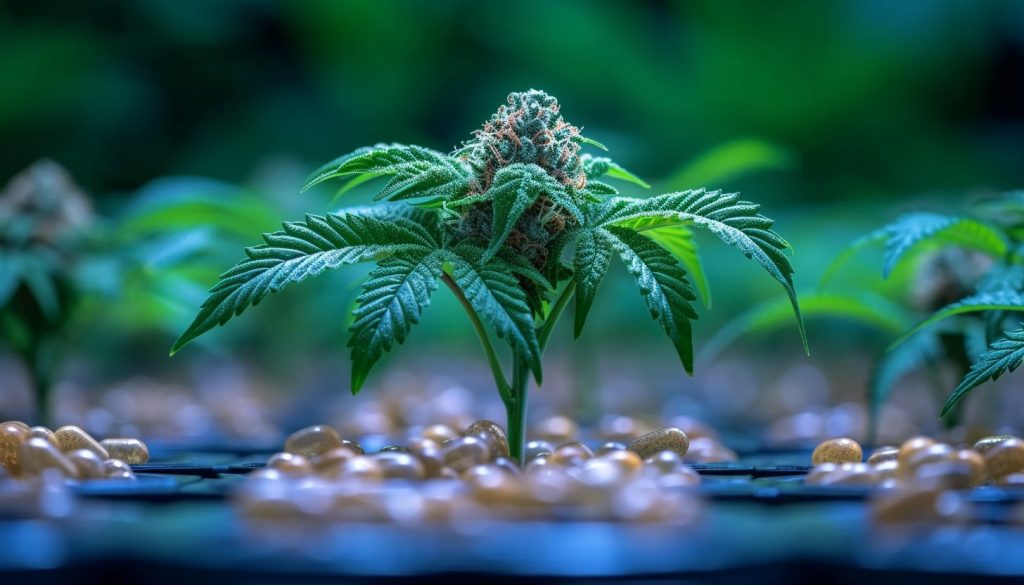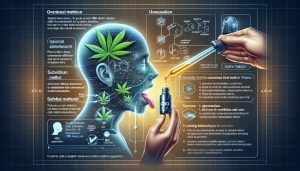In this article, we will address the question “Does CBD fry neurons?” To do this, we will examine the different facets of this popular molecule: what is CBD, how does it act on our nervous system and what are its potential consequences on our neurons.
Sommaire
ToggleWhat is CBD?
Cannabidiol, also known by the acronym CBD, is a chemical substance found in cannabis. Unlike THC, which is the psychoactive element par excellence of the plant, CBD does not produce euphoric or psychotropic effects. On the contrary, it could reduce various symptoms such as anxiety, inflammation and even relieve certain chronic pain. The growing popularity of CBD has sparked great interest in its therapeutic properties and its lack of negative effects on sensory and mental perception.
The effects of CBD on the nervous system
To understand whether CBD can have a negative impact on our neurons, it is necessary to examine the way it interacts with our nervous system. The human body has a complex network called the endocannabinoid system that regulates essential functions such as appetite, sleep, memory, moods and pain.
CB1 and CB2 receptors
The endocannabinoid system is made up of two main types of receptors: CB1 and CB2 receptors. CB1 receptors are primarily found in the brain and are responsible for the psychoactive effects of cannabis. CB2 receptors, for their part, are located mainly in the immune system and regulate inflammation.
Unlike THC which binds directly to CB1 receptors to cause its psychotropic effects, CBD acts in a more subtle way by modulating the activity of these receptors. In fact, the CBD seems to promote activation of CB2 receptors instead., which could explain its apparent lack of psychotropic effects as well as its anti-inflammatory properties.
Neuroprotection and synaptic plasticity
Recent studies also suggest that CBD has neuroprotective properties, meaning it protects neurons from cell degradation and death. These neuroprotective effects may be attributed to its ability to limit the production of pro-inflammatory molecules and increase the levels of natural antioxidants in the brain. Additionally, preliminary research indicates that CBD may promote synaptic plasticity, a fundamental mechanism to promote learning, memory and neuronal resilience.
Does CBD damage neurons?
Current scientific data does not allow us to confirm that CBD burns neurons or causes damage to the brain. On the contrary, several studies indicate that its neuroprotective and anti-inflammatory action could be beneficial for certain neurological conditions.
Multiple sclerosis and Alzheimer’s disease
For example, research into the effects of CBD in multiple sclerosis has shown a reduction in inflammation and improved mobility in patients treated with this molecule. Additionally, preliminary studies suggest that CBD may slow the progression of Alzheimer’s disease by protecting neurons against neurotoxicity induced by amyloid beta peptide, which is known to contribute to neuronal degeneration in this disease.
Epilepsy and psychiatric disorders
In the field of epilepsy, CBD has also demonstrated great effectiveness in reducing the frequency and intensity of seizures in people suffering from severe forms resistant to conventional treatments. Furthermore, some research has highlighted the therapeutic potential of CBD to alleviate various psychiatric disorders, such as schizophrenia, anxiety and even depression.
Partial conclusion
In summary, although research on CBD is still ongoing and more studies need to be conducted to confirm its safety and therapeutic properties, it appears unlikely that this molecule grills neurons. On the contrary, its neuroprotective, anti-inflammatory and synaptic plasticity modulating actions suggest a beneficial potential for neuronal health. However, it is always advisable to consult a healthcare professional to obtain personalized medical advice before using CBD in any form.



